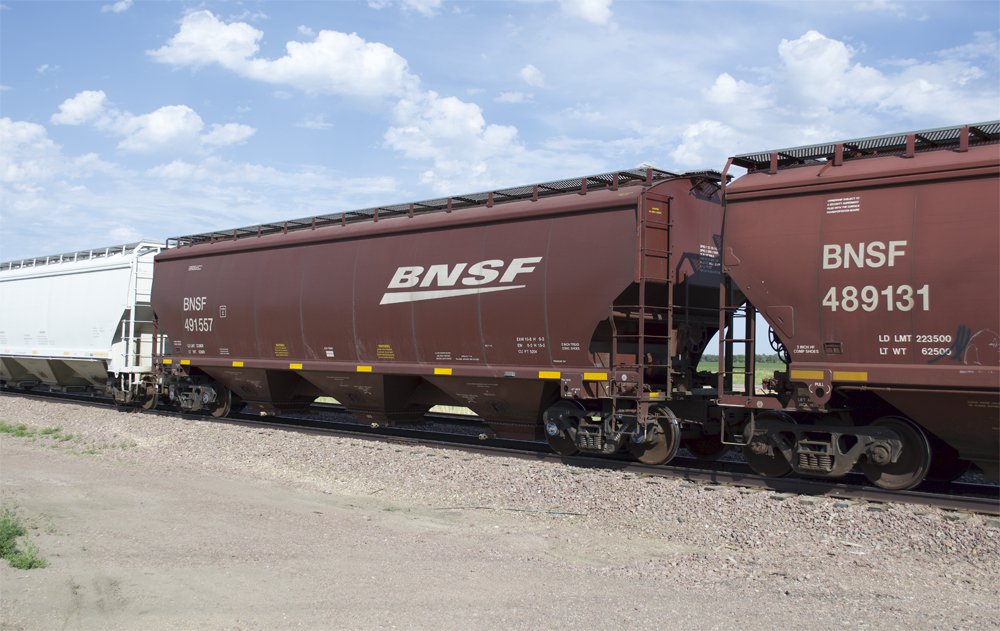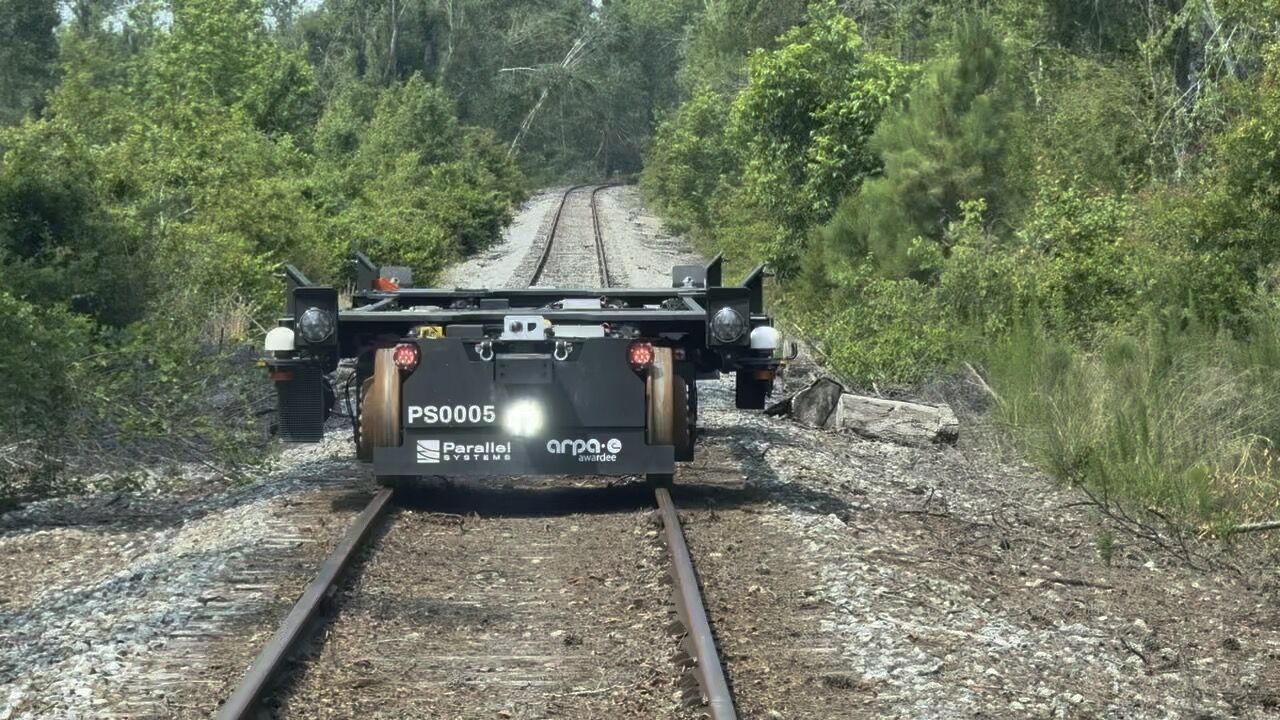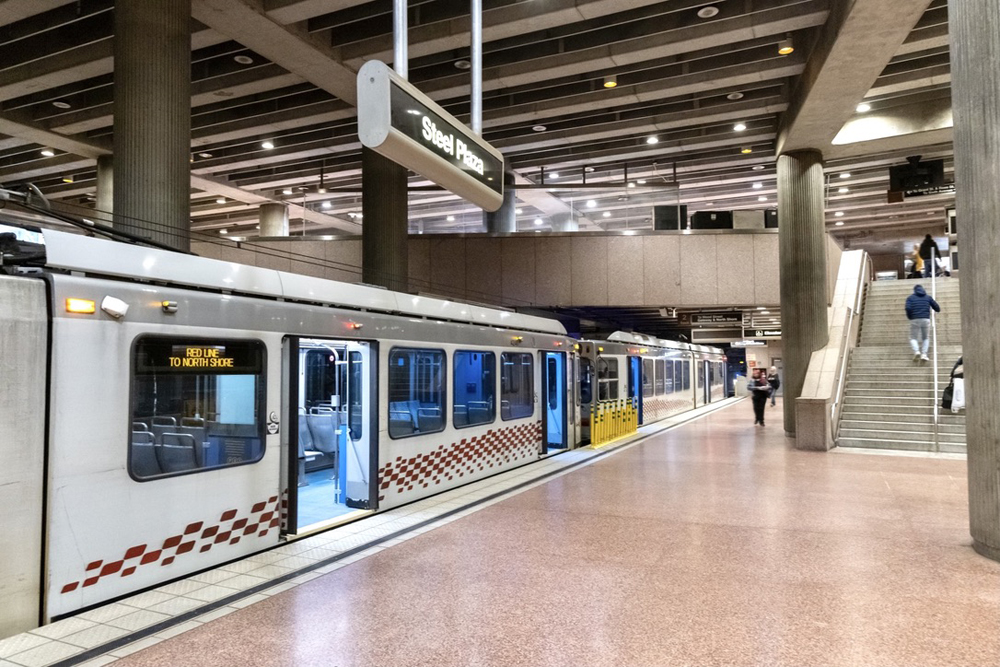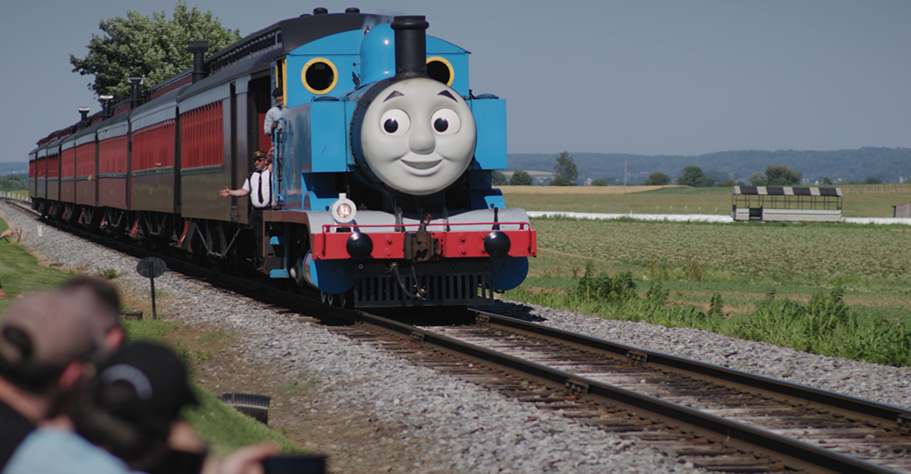
WASHINGTON – BNSF Railway is taking several steps to improve its service to grain shippers, including boosting crew and locomotive availability, CEO Katie Farmer wrote in a letter to the National Grain and Feed Association this week.
The trade group representing grain shippers complained to the Surface Transportation Board last week regarding deteriorating service from BNSF, Norfolk Southern, and Union Pacific.

“As our Chief Marketing Officer Steve Bobb expressed to the STB Members in a recent public hearing, BNSF acknowledges that we are not currently meeting our customers’ service expectations and we are undertaking aggressive measures to drive step-level improvements and regain our customers’ confidence,” Farmer wrote in a letter that was posted to the STB website on Thursday.
BNSF plans to hire 1,000 train, yard, and engine employees this year and currently has 300 new hires in training. The railway has recalled all furloughed employees in the key grain-destination regions of the Pacific Northwest and California, and is offering incentives for train crews to transfer to high-demand areas.
Overall, BNSF’s train and engine crew headcount was up 3.6% in February, well ahead of the 2% increase in freight volume.
“Finally, we implemented a new attendance policy in February, and while change can sometimes be difficult across large organizations, it has led to a substantial increase in crew availability across our network to help keep customer freight moving,” Farmer wrote. Two unions representing crew members are fighting that attendance policy, taking it to arbitration after a court ruling prevented them from striking [see “Unions turn to arbitration …,” Trains News Wire, March 24, 2022].
BNSF added 250 locomotives to the active fleet over the winter and will activate another 100 stored units in the next few weeks. The railway also has boosted shop resources in order to reduce maintenance and repair times.
“These actions will help ensure we have additional locomotives above our projected threshold need in position to keep trains moving and reduce our total cars online,” Farmer says.
BNSF is working with customers to reduce the number of freight cars online by 2%, which should reduce congestion on the network. “Managing the active car inventory is the single most impactful lever we possess to improve network fluidity and restore service consistency at critical terminals all our customers rely on,” Farmer wrote.
A full restoration to normal service levels won’t happen overnight, Farmer warned. But average train speed improved 2.5% in March, and the number of trains holding for power declined despite a slight uptick in traffic during the month.
“With specific regard to our grain network, our efforts are already showing positive results. Over the first quarter of 2022, BNSF delivered an additional 24 unit trains, or 2,642 cars, of agricultural products to receivers in California compared to the same period in 2021,” Farmer wrote. “While we are not yet performing how we want to be across our full grain network, results like this demonstrate our commitment to putting the people, equipment, and resources in place to bring our service product back to our customers’ expectations.”














Moral is at an ALL TIME LOW !!!!! My co-workers, with 10, 15, 20 years of experience are leaving in record numbers. This CEO, Katie Farmer, wants to create “record numbers” and she’s accomplishing it: record numbers of employees QUITTING and being FIRED, and it’s only just begun. The new hires, if they’re able to even get enough to fill a class, after riding with Crew’s who inform them what “RR life truly has in store for them” quit before training ends or shortly thereafter.
BNSF is PURPOSELY slowing trains down, running 60 MPH stack trains as slow as 15 MPH all to save fuel. Nothing other than Zipper’s run ANYWHERE close to trackspeed all in the name of saving fuel. So the idea that “BNSF is doing their best to service customers” is laughable. They have put ridiculous throttle restrictions along with running trains severely under powered which in turn leads to significant locomotive break downs. It’s happening every single day.
BNSF used to be the best class 1 to work for. Katie Farmer single handidly is making it the worst. Now she’ll go crying to the FRA saying “we can’t hire. We don’t have enough employees. The economy is going to suffer unless you allow us to run 1 – man Crew’s”. Watch for it. That’s all part of this CEO’s plans and every new hire that they secure is a future furloughed employee. Mark my words. They want customers complaining about service so they can use this to further attack workers. To management, we’re nothing but a liability they’d love to get rid of. I guess working 260 hours a month isn’t even good enough for them.
Let’s see if they lay off all these new employees at the first hint of a downturn, or if they finally learn from the current debacle. Time will tell.
April Fools, no doubt here
Oh! The railroads could foresee a pandemic? And that Russia would start a war? Did you see these coming? But the RR’s did cut too close to the bone and had no reserves when they needed them. For that, I do fault them.
Points well taken. But the problems were showing before the pandemic and the war; they just amplified the problems. And it’s not just the railroads. During my 20 years in the utility biz the amount of excess generation capacity continued to shrink. Better and more reliable utilization of power plants lead to a confidence by the utilities and regulators to save money. It works 99% of the time. But when things go sideways and your power goes out for 72 hours due to unplanned excess demand or coincident plant shutdowns the ratepayers ask their representation uncomfortable questions.
Another management failure; they didn’t have the resources to see this coming? Whatever BNSF chooses to call it, it’s another failure of the PSR disease running rampant throughout the industry.
Another way to look at it AL DiCENSO, is this: the world situtation should be what the railroads insist it should be. If the world situation doesn’t conform to the railroad’s view of it, then the world situation should change accordingly to fit the railroad’s demands. It’s that neat and that simple, ey???
A casualty of the actions in Eastern Europe is the expected loss of the grain crops from those involved nations. Look for a lot of North American grain heading to export for the duration.
This grain situation can be a very big problem. The RRs are going to need to get the velocity of grain cars higher to prevent a shortage of grain cars this year. Locos and crews in the necessary numbers to prevent any trains parked for lack of crew. Also, sufficient capacity at grain export facilities, & sufficient ships are all needed as well.